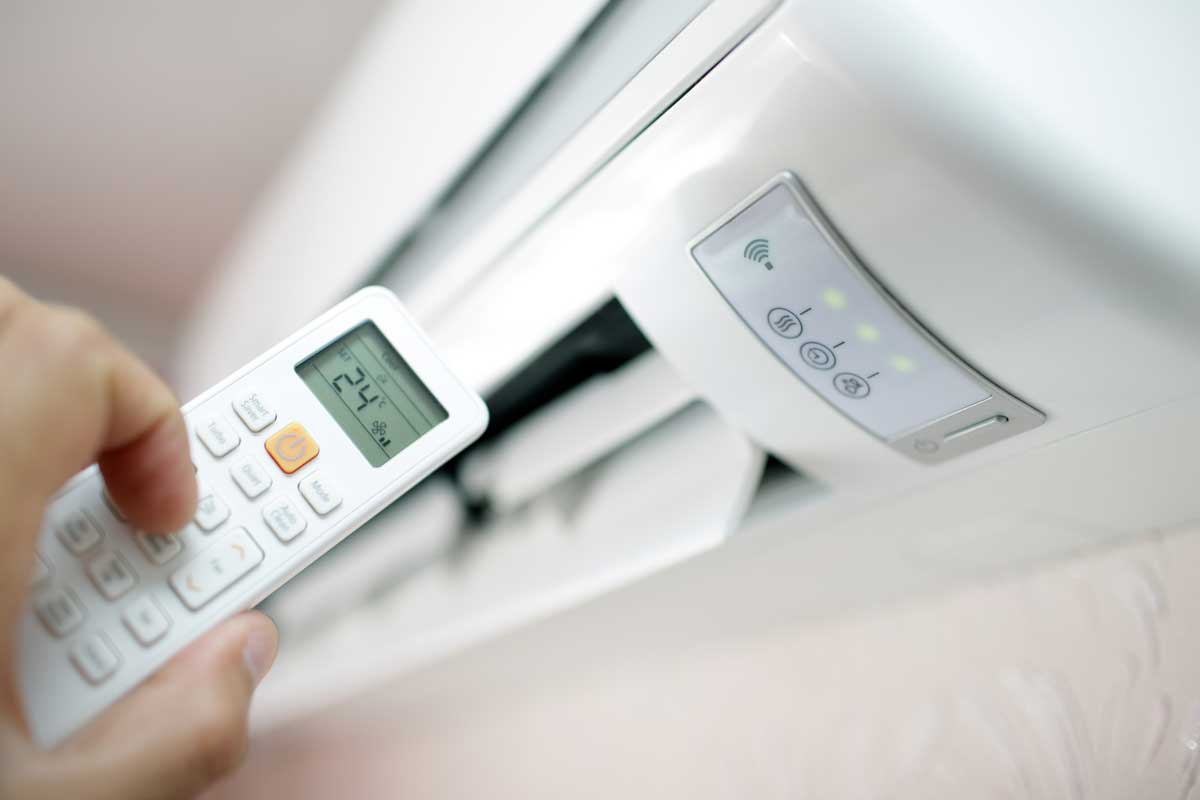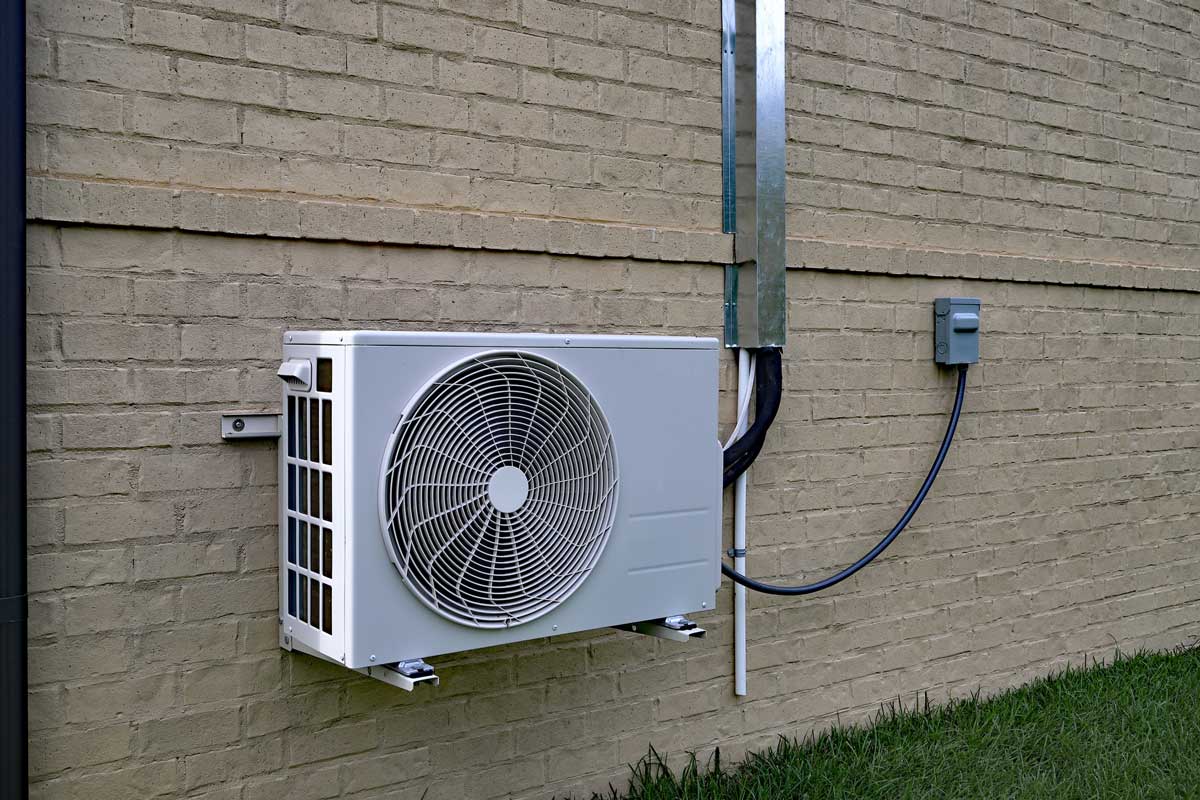If you're considering installing a ductless air conditioner system (aka "mini-split" system) in your home or are purchasing a new home, you may be wondering how long it will last, and if it's worth the investment. Well, look no further. We've rounded up a few facts on the average lifespan of ductless AC systems to help you with your decision.
Assuming that the ductless AC system is adequately maintained by the homeowner via a professional HVAC service provider and sized correctly for the space to be cooled, it can last anywhere from 15 to 20 years or more. The average lifespan of a mini-split system is typically a bit longer than that of a traditional HVAC system.
Mini-split systems also come with many advantages, in addition to just lasting longer than other HVAC systems. But what exactly is it about ductless AC systems that make them last longer? Please keep reading as we take a closer look.

Ductless AC Systems Are Long Lasting
Ductless air conditioners last longer due to one reason, the compressor. The compressor is essentially the heart of an air conditioning system. Without it, coolant would not flow throughout the system to keep a home at a cool, comfortable temperature. Replacing a compressor is one of the most expensive repairs that you can incur with an HVAC system. However, with a ductless system, the compressor tends to last a bit longer. But why?
There are two main reasons why compressors fail, including:
1. A Dirty Coil
Your air conditioner's indoor coil is responsible for removing heat from the air in your home. And when the coil gets plugged up with dirt and debris from the ducts, its ability to cool is significantly reduced, and it can even start to ice over--this will cause the system to break down completely. This issue doesn't occur nearly as often with ductless systems due to there being no ductwork in these systems.
2. Hard Starts
Compressors require a good jolt of electricity to start. And when your air conditioner starts and stops several times a day, this can take a toll on its lifespan. Most ductless systems utilize a variable-speed compressor that utilizes an inverter to slow down or speed up the motor, thus saving the compressor energy and increasing its lifespan.
Does Ductless Air Conditioning Increase Home Value?

Appliance upgrades and updates add resale value to a home. However, it's hard to quantify the exact value that a ductless system adds to a home versus other HVAC systems. A new (or recent model) ductless system can certainly add to a home's saleability and market appeal, as many new homeowners will view it as a huge plus. Even if you aren't planning on selling your home anytime soon, installing a ductless system can be a beneficial investment due to their efficiency. But let's look at a few other factors that make these systems appealing to current and future homeowners.
Easy To Install
Ductless systems provide homeowners with a cost-effective way to replace window AC units, electric baseboard heaters, and space heaters. A traditional central air conditioning system takes weeks to install and can disrupt day-to-day home life. Mini-split systems have a less-invasive installation process, and depending on the number of outdoor and indoor units needed, they can be up and ready in as fast as one day.
Provide Flexible Solutions
Traditional central air conditioning systems blow cold air through ducts to cool or heat a home; ductless systems can deliver air directly into different areas of the house. They consist of one small outdoor unit and multiple indoor units and only require access to the home's electricity and simple mounting capabilities.
Ductless systems can be installed in new construction buildings, home additions, apartments, or to improve temperature control settings within specific rooms.
Energy Savings
Perhaps the most noteworthy benefit of a ductless air conditioning system is the overall energy savings to the homeowner. When a home's HVAC system isn't efficient, energy bills can easily climb during the summer and winter months. Ductless systems require less power to operate; they are typically smaller than the traditional centralized system. Because they can deliver air directly into a room, there isn't a loss inefficiency.
The "zones" that ductless systems allow homeowners to create means that they can save energy by not having to deliver cold or warm air to unoccupied rooms.
In addition to cutting utility costs, homeowners may also qualify for utility rebates or tax credits for the year that they install a mini-split system. There are several programs at a local, state, and federal level that allow home and business owners to take advantage of these money-saving opportunities.
Architecture and Structure Preservation
Older homes tend to be more challenging when it comes to installing modern heating and cooling options and trying to preserve the building's architecture at the same time. With a ductless system, there is no need to cut into any part of the home to install ductwork invents, other than a small hole in the wall (around three inches). These systems allow historic homes to retain more of their original and authentic value while also making the house a more comfortable residence.
Is Ductless Air Conditioning More Efficient Than Central Air?

Ductless mini-splits are upheld to the same standards as central systems in terms of efficiency. However, ductless systems offer higher efficiency ratings because they have advanced technology that reduces energy usage while still operating just as effectively.
As air moves through a home's ductwork, it tends to seep out into other areas of the house. For example, if your ducts run through your attic in the summer when temperatures are at an all-time high, some of the cold air will leak into that space, increasing your total cooling costs. Because of this factor, centralized AC systems can cause energy losses of nearly 25-30%. This issue is non-existent with a ductless system as there is no ductwork for the air to leak out from; the air will blow straight into the room in which the unit is installed.
How To Maintain A Ductless Air Conditioner?
It's important always to maintain a ductless air conditioning system to maximize its lifespan. Let's take a look at the best ways to do this.
Scheduled HVAC Maintenance
HVAC specialists recommend scheduling maintenance twice a year, once during the fall and another during the spring--drastic weather changes can wreak havoc on your system. Having your unit maintained by a professional can help to ensure that it remains in the best possible condition as well as prevent any future breakdowns.
Here are the most common tasks that you can expect your technician to perform during the maintenance visit:
- System performance check and safety inspection
- System filter inspection and cleaning (if needed)
- Parts inspection for general wear and tear (and lubricant applied where applicable)
- Dust and debris removal
- Electrical connection inspection (and tightening as needed)
- Current airflow configuration check
There are also a few tasks that homeowners can perform to help keep their system in shape between maintenance visits from their HVAC service provider. Here are a few:
Clean your air filters regularly
Unlike centralized air-conditioning systems, ductless systems don't require a filter change every three months because the filters are not disposable. Instead, it's recommended to clean these filters every two weeks. You can clean the filter by simply wiping it with a dry cloth to remove any dust and debris.
Keep The Unit Free From Obstruction
Always make sure that your ductless AC unit is free from obstruction. Things such as artwork, furniture, and appliances can block the air output from your unit. Experts recommend having at least four feet of open space surrounding your unit so that it can cool your home effectively.
Check The Condenser Coil
An outdoor unit with a dirty coil or condenser can shut down due to overheating, and will result in expensive replacement or repair costs. Keeping the outdoor AC unit clean is critical to the overall efficiency and operation of a ductless system. You can clean the coil by spraying it with a water hose, applying condenser coil cleaning foam, and use a coil brush (as needed). Always be sure to turn your unit off before cleaning its components.
Check out this coil cleaning foam on Amazon.
To Sum Things Up
We hope that now you're equipped with more information about ductless air conditioner systems, their lifespan, and how you may benefit from installing one in your home. Hopefully, this can help you decide if a ductless air conditioner system is a good fit for your home.
Also, be sure to check out our other articles to learn more about air conditioning systems:
Does Air Conditioning Add Moisture To The Air?
How Long Does An HVAC Unit Typically Last [And How To Make It Last Longer]?


It’s great to know that ductless ACs are capable of making zones in your home that you can control the temperature in. With how large our house is, having one central cooling system isn’t very practical at all, especially during the summer season when we’ll be using it all the time. I’ll take your advice about this and look for an HVAC contractor in the area that can help us out in installing a ductless system right away.